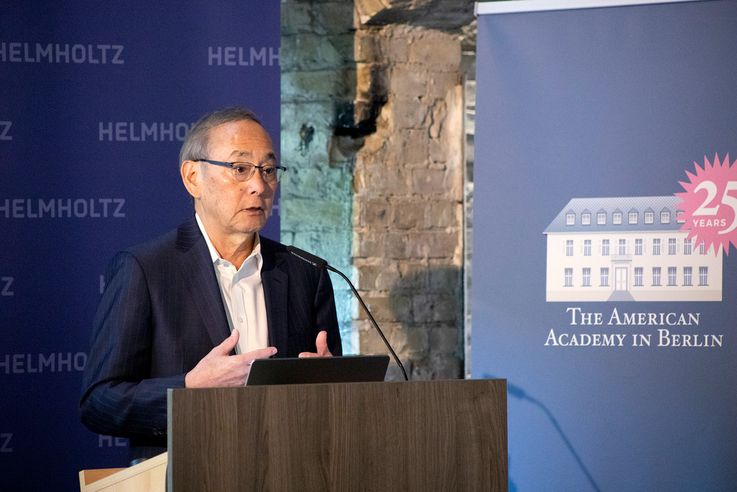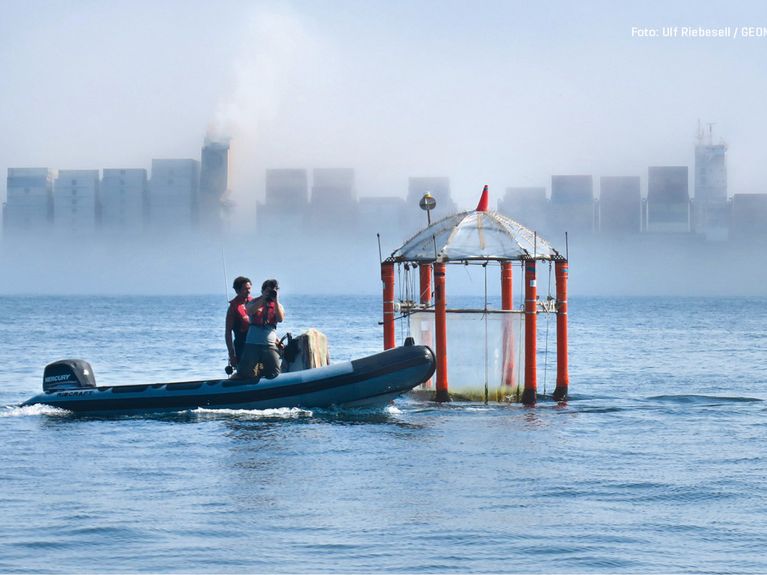Nobel Laureate Steven Chu on Innovative Paths toward a More Sustainable Future
Former US Secretary of Energy Steven Chu spoke about innovative paths toward a more sustainable future as part of an event organized by the American Academy in Berlin and the Helmholtz Association.

Steven Chu in the Charité’s lecture hall ruins. Bild: Annette Hornischer/American Academy in Berlin
Multiple industrial and agricultural revolutions over the past two centuries have transformed the world; they have also changed the climate of the earth. By the year 2100, eleven billion people will require sufficient clean energy, water, and food for their survival and future prosperity. How we transition to from where we are to where we need to be will require another industrial and agricultural revolution. And this challenge, argues Steven Chu, contains perhaps the most pressing set of issues that science, innovation, and public policy must address in the coming years.
Steven Chu is Professor of Physics, Molecular and Cellular Physiology, as well as Energy Science and Engineering at Stanford University. He received the 1997 Nobel Prize in Physics for laser cooling and trapping of atoms. From 2009 to 2013 Chu served as US Secretary of Energy, where he began ARPA-E, the Energy Innovation Hubs, and was tasked by President Obama to help BP stop the Macondo Oil spill. He is currently Chairman of the Strategic Advisory Board for the Helmholtz Research Field Energy.
In his one-hour talk, Chu discussed the significant technical challenges and potential solutions that could provide better pathways to a more sustainable future. The event took place on May 6 as part of the Richard Weizsäcker Lecture and is a collaboration between the American Academy in Berlin and the Helmholtz Association.
Recording of Steven Chu’s lecture on May 6, 2024 at the Charité lecture hall ruin
Climate Change and Innovative Paths toward a More Sustainable Future
